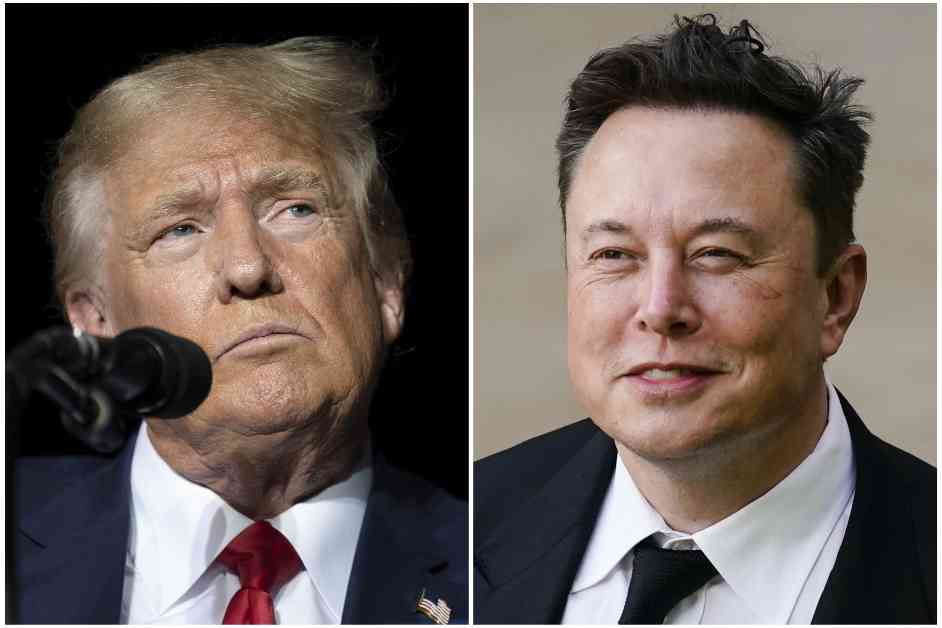In a surprising turn of events, some of the top tech companies in the industry are throwing their support behind President Trump. This shift in allegiance has raised eyebrows, as the tech sector has long been associated with progressive values and ideologies. President Trump’s recent endorsement from billionaire innovator Elon Musk has sparked speculation about the influence of these tech titans in the upcoming election.
Elon Musk, the founder of companies like Tesla and SpaceX, recently expressed his willingness to work with President Trump if he wins in November. This unexpected show of support from Musk, who had previously voted for Secretary Clinton in 2016 and President Biden in 2020, has raised questions about the motivations behind his decision to back the Republican candidate. Despite the potential conflicts of interest, Musk has even launched a pro-Trump super PAC, indicating his strong support for the current administration.
The tech industry’s support for Trump is not limited to Elon Musk. Other prominent figures in Silicon Valley, such as Nicole Shanahan and Mark Cuban, have also expressed their backing for the Republican candidate. Shanahan, who was Robert F. Kennedy Jr.’s running mate, believes that the future of the country is more secure under Trump’s leadership than under a potential Harris administration. She cites concerns about Harris’ economic policies, particularly her proposals for price controls on food, which Shanahan likened to the policies that led to famine in Mao’s Communist China.
The Republican National Committee’s platform, which emphasizes lower taxes and deregulation, has resonated with tech leaders who view innovators as national treasures. In contrast, the Democrats’ platform for 2024 has been criticized for vilifying businesses and proposing higher corporate taxes. This stark contrast in economic policies has driven tech entrepreneurs like Andreessen Horowitz to throw their support behind Trump, citing the importance of an optimistic, technology-enabled future.
President Trump’s enthusiasm for new technologies, such as artificial intelligence, has also won him support from the tech industry. His promises to prioritize America’s position in AI development have resonated with investors and entrepreneurs who see potential for growth and innovation under his administration. The endorsement of Trump by venture capitalists like J.D. Vance and David Sacks, as well as cryptocurrency pioneers Cameron and Tyler Winklevoss, further highlights the tech sector’s alignment with the Republican candidate.
The migration of tech companies from California to Texas has also been attributed to the changing political landscape. High taxes and overbearing regulations in California have prompted thousands of firms to relocate to Texas, where a more business-friendly environment awaits. Austin, Texas, has emerged as a tech hub known as Silicon Hills, attracting companies like SpaceX and soon, X’s headquarters. This shift in location reflects a broader trend of tech companies seeking refuge from oppressive government policies.
In addition to economic considerations, tech leaders are also concerned about preserving free speech and combating government censorship. Elon Musk, in particular, has been a vocal advocate for free expression, even in the face of government pressure. His decision to close X in Brazil and suspend operations in Venezuela due to censorship issues demonstrates his commitment to upholding the principles of free speech. This stance aligns with the Republican Party’s platform, which pledges to end federal interference in social media and protect freedom of expression.
As the tech industry continues to navigate the political landscape, the influence of tech companies in supporting President Trump has become increasingly apparent. The alignment of tech leaders with the Republican candidate reflects a larger trend of shifting allegiances and priorities within the industry. Whether motivated by economic incentives, concerns about government overreach, or a commitment to free speech, tech companies are playing a significant role in shaping the political landscape of the upcoming election.

